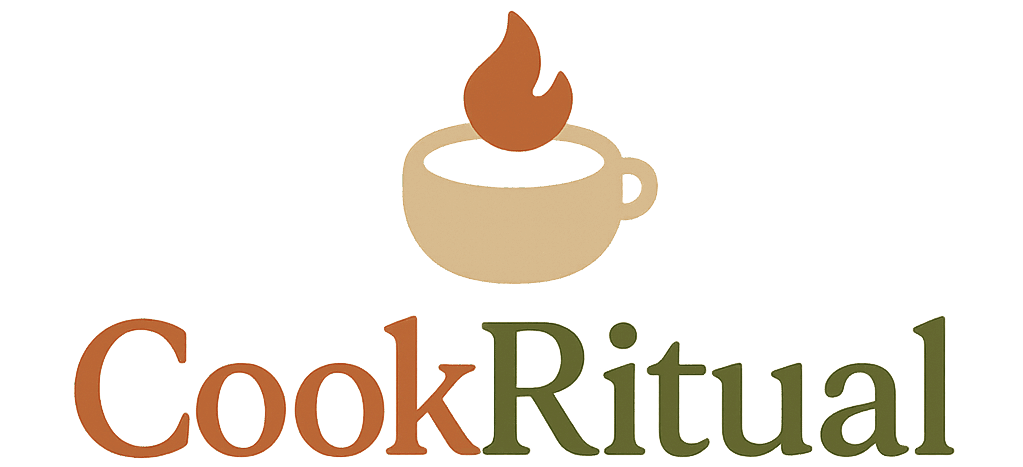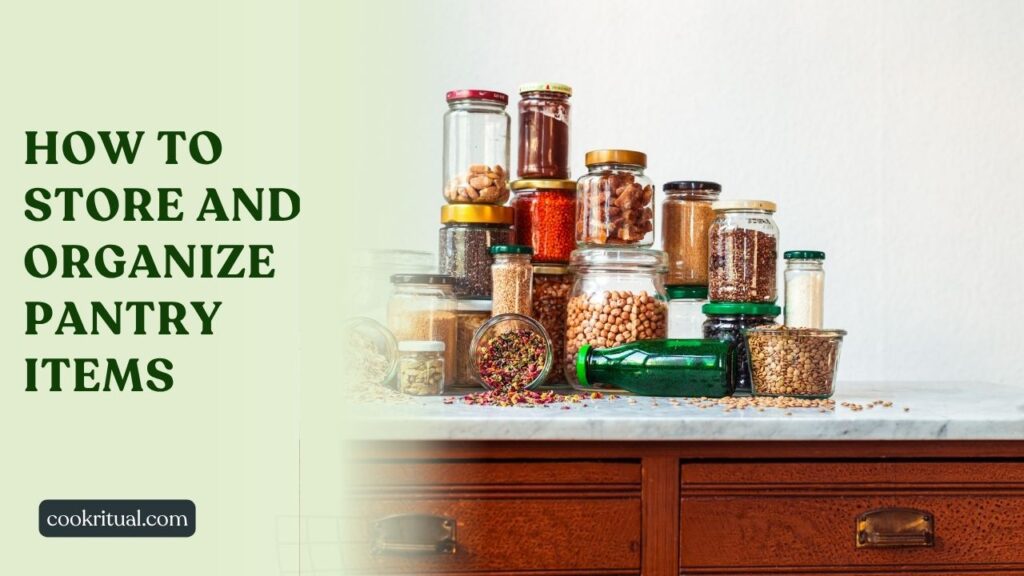A well-organized pantry isn’t just about aesthetics—it’s the secret to smarter cooking, saving money, and reducing food waste. When we can clearly see what we have on hand, we’re less likely to buy duplicates, let food expire, or miss out on ingredients we already own.
But let’s be honest—most of us have opened our pantry only to be met with a chaotic mess of half-used bags, cluttered shelves, and expired cans hiding in the back. Whether we’re cooking healthy meals for the family or meal prepping for a busy week ahead, a disorganized pantry only slows us down.
That’s why learning how to store and organize pantry items isn’t just a nice-to-have—it’s a must-have for anyone serious about eating well and staying efficient in the kitchen. In this guide, we’ll walk through practical steps, budget-friendly tips, and expert tools that transform even the smallest pantry into a high-functioning space. And don’t worry—we’ll keep things simple, realistic, and totally doable.
Ready to reclaim your pantry space and make your kitchen work for you? Let’s dive in.
Contents
- 1 Step-by-Step Guide to Organizing Pantry Items
- 2 Smart Storage Solutions for Every Pantry
- 3 Maintenance Tips to Keep It Organized Long-Term
- 4 Best Products for Pantry Organization
- 5 Common Mistakes to Avoid
- 6 FAQs About Pantry Storage and Organization
- 7 Comparisons: Pantry Organization Methods
- 8 Actionable Recommendations for a Functional Pantry
- 9 Conclusion: Recap and Next Steps
Step-by-Step Guide to Organizing Pantry Items
Empty and Clean Your Pantry First
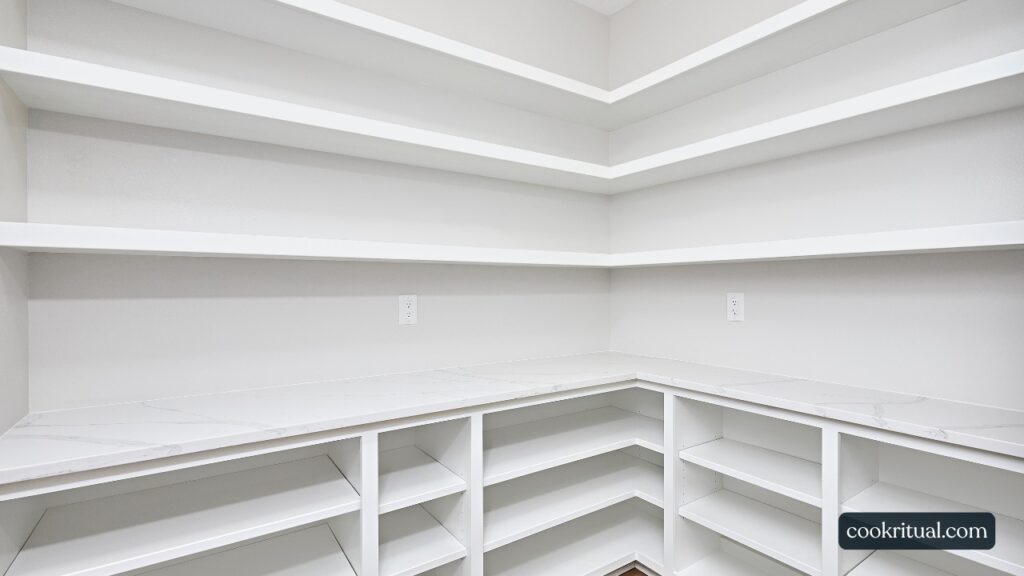
The first step to effective pantry organization is to empty everything out. This helps us see exactly what we have. Once the pantry is empty, it’s important to clean all the shelves and corners well. Use a gentle cleaner or a mix of water and vinegar to wipe surfaces. This not only removes dust and crumbs but also keeps pests away. For a safe and natural option, check this guide on cleaning kitchen surfaces from the EPA.
A clean pantry is the perfect blank canvas to start fresh. This step prevents mold and pests, and it ensures that food storage bins and containers stay sanitary.
Sort Items by Category and Usage
Next, group your pantry items by type and how often you use them. Separate dry foods like pasta, rice, and grains from canned goods and baking supplies. Also, keep snacks and spices in their own zones. Organizing by category helps us find what we need quickly and keeps the pantry neat.
It’s helpful to put frequently used items at eye level and less-used items higher or lower on shelves. This is a simple trick for small pantry organization. For more ideas on sorting, the American Dietetic Association shares expert food storage tips.
Declutter and Discard Expired Items
Before putting anything back, check the expiration dates on everything. Throw away expired food to avoid health risks and free up space. If you’re unsure about when food goes bad, the USDA’s FoodKeeper app is a great tool to track freshness and storage times.
Decluttering also means donating unopened, non-perishable food you won’t use. This helps reduce waste and supports your community.
Smart Storage Solutions for Every Pantry
Use Clear, Airtight Storage Containers
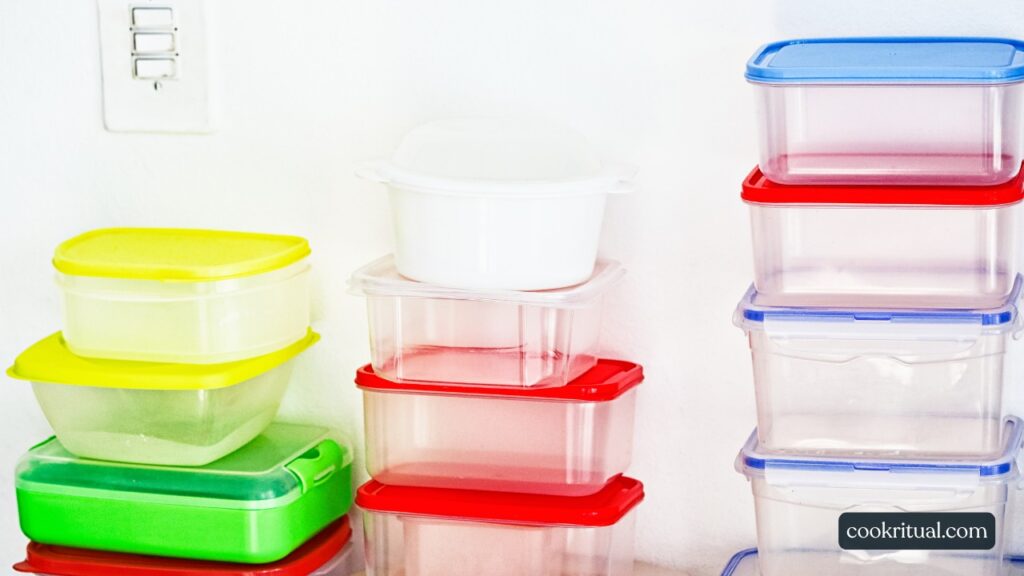
One of the best ways to keep your pantry neat is by using clear, airtight storage containers. These containers keep food fresh longer and make it easy to see what’s inside without opening them. Glass or BPA-free plastic containers are top choices for safety and durability.
Airtight containers prevent moisture and pests from damaging dry goods. For a deeper dive into the benefits of airtight storage, check this guide by Harvard Health.
Optimize Space with Stackable Bins and Shelf Organizers
Maximize your pantry space by using stackable storage bins and adjustable shelf organizers. These products help use vertical space smartly, which is especially important for small pantries.
Using shelf risers or baskets also keeps smaller items visible and accessible. This not only makes the pantry look tidy but saves time during cooking. The Container Store offers a variety of these solutions, suitable for all budgets.
Label Everything for Quick Access
Labeling pantry items is a simple step that makes a big difference. Use chalkboard labels, printed tags, or even color codes to mark containers. This helps everyone in the household quickly find ingredients and know when to restock.
Labels reduce confusion and improve your kitchen flow. For easy DIY labeling ideas, see this family organization guide.
Add Specialty Organizers (Lazy Susans, Risers, Racks)
Specialty organizers like lazy Susans, tiered risers, and racks are perfect for deep shelves and corners. They keep spices, sauces, and smaller items from getting lost at the back.
These tools improve accessibility and make meal prep faster. You can find affordable options at most home goods stores or online.
Maintenance Tips to Keep It Organized Long-Term
Keeping your pantry organized takes regular effort, but it’s easier than it sounds. Here are some simple tips to maintain order:
- Follow a weekly pantry checklist to spot expired items and tidy up. This keeps the space clean and food fresh. You can find printable checklists on ChooseMyPlate.gov.
- Do a seasonal deep clean every few months to reset the pantry and clean any spills or crumbs.
- Rotate food stock by placing newly bought items at the back and older items in front. This prevents food waste and keeps everything fresh longer.
With these habits, your pantry will stay neat and functional, supporting healthy cooking every day.
Best Products for Pantry Organization
Must-Have Pantry Storage Tools
Choosing the right tools can make pantry organization easier and more effective. Some must-have pantry storage tools include clear food bins, airtight containers, shelf risers, and lazy Susans. These help keep your pantry tidy and maximize space.
For example, airtight containers are great for keeping dry goods fresh and preventing pests. Stackable bins allow you to use vertical space well. Lazy Susans help access items stored in deep corners.
If you want trusted product recommendations, Good Housekeeping reviews top pantry organizers that work for different budgets and pantry sizes.
Where to Buy: Best Online & Retail Stores
You can find pantry organization products in many stores. Popular options include Amazon, The Container Store, and IKEA. These retailers offer a wide range of containers, bins, and racks at various prices.
Shopping online often gives you more choices and customer reviews. In stores, you can see and feel the quality before buying. For budget-friendly tips on pantry tools, check out The Spruce.
Common Mistakes to Avoid
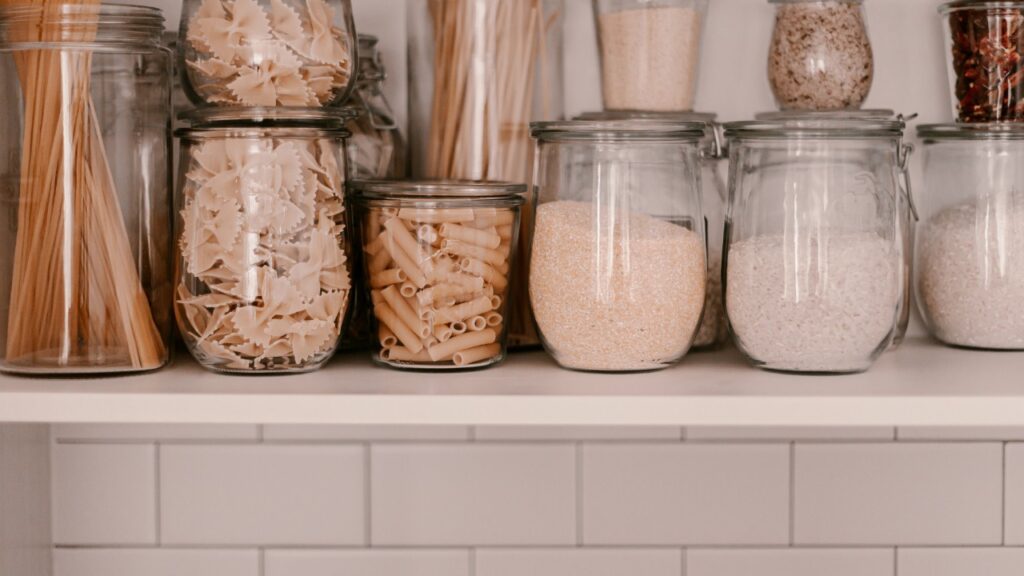
When organizing a pantry, some mistakes can make the process harder or less effective. Here are the most common ones to watch out for:
- Buying too many organizers before decluttering. It’s best to clear out expired items first to know exactly what you need.
- Ignoring expiration dates, which can lead to food waste or health risks.
- Not using vertical space properly. Shelves often have unused space above items, which can fit risers or stackable bins.
- Overcrowding shelves, making it hard to find things and keep the pantry tidy.
Avoiding these mistakes will help you maintain a neat pantry that works well for daily cooking and meal prep.
FAQs About Pantry Storage and Organization
How often should I reorganize my pantry?
It’s good to do a quick tidy-up every week and a deeper clean every three to six months. This keeps food fresh and the pantry clutter-free. Regular checks help avoid expired items. More tips are available from the FDA’s food safety guide.
What’s the best way to store dry goods?
Using airtight containers is the best way to store dry goods like rice, flour, and pasta. These containers keep moisture and pests out, extending shelf life. Clear containers also help you see when it’s time to restock.
Should I decant all food items?
Decanting food into containers is helpful for items that come in bulky or non-resealable packaging. However, some items like canned goods are best left in their original packaging. Decant only if it improves space and freshness.
How can I organize a small pantry without shelves?
For small pantries without shelves, consider using stackable bins and hanging organizers on the door. You can also use portable carts to add extra storage space. These tips are great for small pantry organization and can be found on Apartment Therapy.
Comparisons: Pantry Organization Methods
Open Shelving vs. Closed Cabinets
Both open shelving and closed cabinets have pros and cons for pantry organization. Open shelves make it easy to see and access pantry items quickly. They encourage neatness because everything is visible. However, open shelving can collect dust and require frequent cleaning.
Closed cabinets protect food from dust and light, which can help preserve freshness longer. But they make it harder to keep track of items since you can’t see everything at once. Choosing between them depends on your kitchen layout and personal preference.
For more insights on storage types, visit Houzz’s pantry organization tips.
DIY vs. Store-Bought Organizers
DIY organizers can be budget-friendly and customizable. Simple boxes, jars, or repurposed containers work well. But store-bought organizers are designed for durability and specific uses, like stackable bins or adjustable shelves.
If you like hands-on projects, DIY solutions offer fun creativity. For those who want convenience and guaranteed fit, store-bought options might be better.
The The Spruce has helpful guides on both approaches.
Actionable Recommendations for a Functional Pantry
Start Small and Build Up
If your pantry is very cluttered, start by organizing one shelf or section at a time. This makes the task manageable and less overwhelming. Celebrate small wins to keep motivated.
Use Labels and Clear Containers
Labels and transparent containers help everyone in your home find what they need fast. This saves time during cooking and reduces stress.
Create Zones by Food Type
Group similar items together—like baking supplies, snacks, and canned goods. Creating zones makes it easier to grab ingredients and keep the pantry tidy.
Regularly Check Expiration Dates
Set a monthly reminder to review your pantry for expired foods. This keeps your pantry safe and helps prevent waste.
For more practical advice on pantry maintenance, see USDA’s Food Storage Guide.
Conclusion: Recap and Next Steps
Organizing your pantry is a simple way to boost kitchen efficiency, reduce food waste, and support healthy eating habits. With the right tools, clear storage, and smart habits, you can turn any pantry into a well-ordered space that makes cooking easier and more enjoyable.
Start by emptying and cleaning your pantry, sorting items, and choosing storage solutions that fit your needs. Avoid common mistakes, and maintain your pantry with small, regular efforts.
